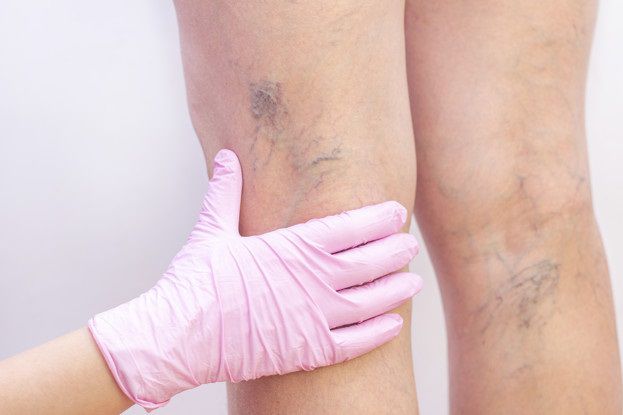If you have varicose veins, you are probably well aware of them. They occur when veins become swollen, enlarged, and can no longer function properly. Varicose veins can be achy or downright painful as well as cause itching and other bothersome symptoms, including affecting your confidence.
Varicose veins do often require medical treatment, so it is imperative to receive medical supervision. You can make lifestyle changes that may prevent the development of more varicose veins, but any existing ones may need high-quality vein treatment at a professional vein center.
Varicose Vein Symptoms
Varicose veins are one of several conditions that can develop when the valves within veins become weak. The valves normally stop the blood flow from traveling back down into the legs.
When the valves within veins stop working, blood collects or “pools,” leading to twisted, swollen, and highly visible veins. Typically, they are blue and bulge from underneath the skin. However, there are a few other symptoms of varicose veins:
- Throbbing, chilling, or burning sensations in the legs
- A heavy or achy feeling
- Swelling in the feet and ankles
- Itchy and dry skin, leading to scratching and even bleeding
How are Varicose Veins Diagnosed?
If you are looking to get your varicose veins treated, you will first need a diagnosis. The best way to do this is through a professional evaluation, which entails a detailed analysis and “mapping” of the leg veins. The doctor will also assess any difficulty you have with standing and walking. You may also require an ultrasound to determine the extent of your venous insufficiency, or vein disease.
Treatments at Home for Varicose Veins
If you have varicose veins, you might wonder if there are any home remedies to treat them or reduce discomfort. While lifestyle changes will probably not change the appearance of existing varicose veins, they may help with your current symptoms and prevent new ones from developing.
Exercise: Regular exercise promotes improved blood circulation in the legs as well as the entire body. This helps the intense pressure within the veins subside a bit. Try to prioritize low-impact exercise that won’t strain the veins further. A few possible activities include:
- Swimming
- Yoga
- Cycling
- Walking
Wearing compression stockings: Compression stockings can be beneficial in reducing symptoms, especially in the earlier stages of vein disease. These stockings provide pressure to prevent blood clots and excess blood collecting in the veins. While compression stockings are sold in many stores, it is best to receive guidance from a qualified physician first as well as ensure a proper fit.
Dietary changes: Tweaking your diet can reduce the adverse effects of varicose veins over time. Salty or high-sodium foods (often, processed foods that don’t necessarily taste very salty) can cause water retention that will negatively impact leg veins. By contrast, foods high in potassium or Omega-3 fatty acids can help. Some options include:
- Potatoes
- Green leafy vegetables, like spinach
- Almonds
- Pistachios
- Salmon or tuna
Find a Vein Specialist in Philadelphia
Are you looking for a professional to treat varicose veins Philadelphia? Consult a vein clinic with professional vascular doctors who can help.
The Center for Advanced Vein Treatment can diagnose and treat vein disease minimally invasively, including varicose and spider veins. We are located just minutes from Philadelphia, PA. Call us today to schedule your consultation: 267-728-7440.


